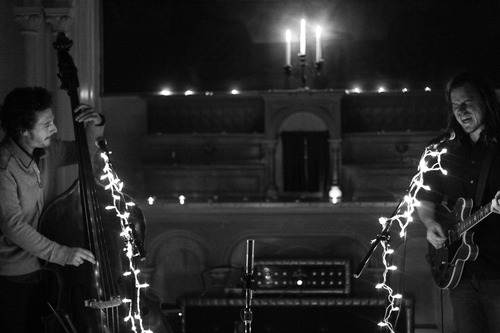
We Are The West on Time, Song as Forum and Flashes of The Specific
In life I’ve found there are certain through lines—strange games of telephone that connect us—which get dug up at odd moments and laid plaintiff in clear view, a live wire which can ignite in the field at any moment. I had one such moment several years ago when I first began graduate school at Columbia. We were holed up in David Plante’s apartment overlooking River Side Drive, with a view of the Hudson. A young, long-haired fellow with a ready smile came over and sat next to me on the sofa. Somehow we got to talking about music. “So.” he said. “What have you been listening to?” I paused, as this seemed the perennial litmus test, and I didn’t want to admit that what peopled my headphones was often outside the circles of what was de rigueur at the moment. “Well,” I said. “I’ve been listening to this Neil Young song on repeat in the park and writing a story about America.” That was it. The connection was cast. It turns out the young man was a musician. “Me too,” he said.
Brett Hool now makes up one part the Los Angeles based duo, We Are The West. WATW is interested in exploring the convergence of sound and space. Together with his musical soul-mate, John Kibler, a talented classical bass player and the second heart of the band, the two often take to the road to record in experimental locations, searching out how the acoustics of place converge with live narrative. The two have performed in storm drains and shipping containers, sheep farms and convents, and most frequently converge in the underground parking garage of an office building on Santa Monica Boulevard the Saturday before each full moon. I recently chatted with Brett and John to discuss time, song as forum and flashes of the specific in their third installment of a four-part album of recordings, an eleven minute suite recorded live in the high desert of New Mexico.
—Ann DeWitt
I. HOLDING YOUR BREATH FOR LONGER THAN YOU THINK YOU CAN
ANN DEWITT: That line at the opening of your new song, “gunning after you,” where did that come from? What associations does it have? It’s kind of a metaphor and it’s kind of just a phrase.
BRETT HOOL: We’ve been working on the song for a long time. At this point the words have started changing meaning.
AD: But is it a phrase that you associate with a certain time in your life? Or can you remember the first person that ever said that?
BH: Well, this...
You have reached your article limit
Sign up for a digital subscription and continue reading all new issues, plus our entire archives, for just $1.50/month.
Already a subscriber? Sign in




